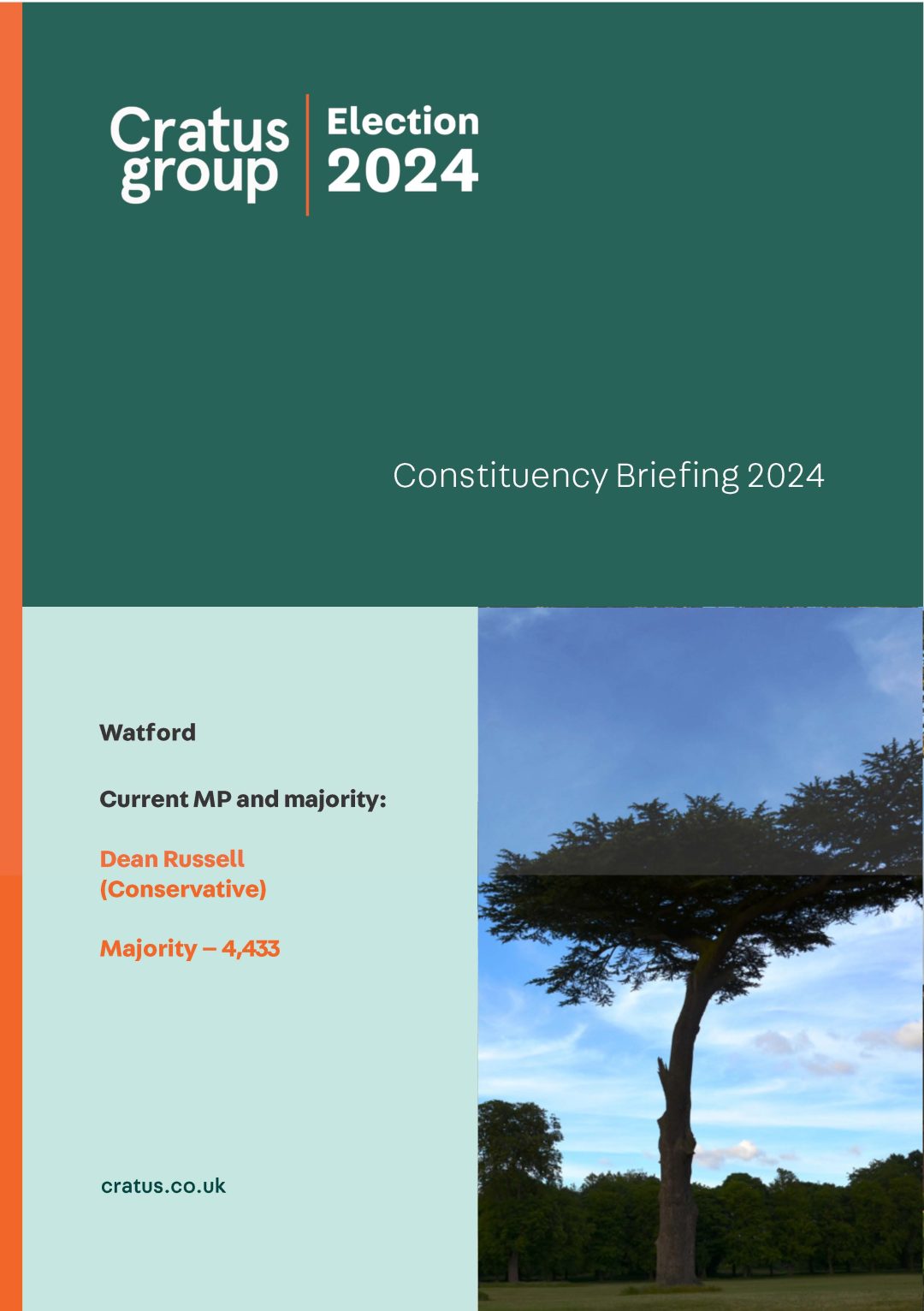Chairman May – Is municipal housebuilding due a resurgence?
A common problem with an opposition in disarray is that the figures heading up the whole affair don’t have to worry a great deal about the opposition casting them out of Number 10 and into the tundra. It can create a poor policy making environment; the lack of pressure, the lack of real challenge, that often, despite the self-flagellating nature of the Tory party in government, only an external opposition can really provide.
However, at times that lack of pressure can also find outlet in an old, honourable and sadly under-used policy making approach – which is nicking ideas and approaching things fundamentally differently, and possibly, just possibly, affecting real, structural change.
The measures proposed in the Conservative manifesto would on the surface, seem to have the potential to affect significant change, creating a new form of social housing and kickstarting greater council involvement in building.
In a process rapidly fuelled by the housing reforms enacted by Thatcher, we’ve been a nation of those who own property and those who aspire to do so.
Thatcher wasn’t a visionary; Right to Buy wasn’t a Conservative idea. It was a cross-party notion originally (though for wildly different reasons), aimed mercurially at the release of the particularly rich political capital which lies in subsidising folks in such a way that it isn’t widely recognised as a subsidy. However, Thatcher brought it in nationally and Thatcher reaped the rewards.
Home ownership being the ultimate goal is a position in British political discourse from which governments haven’t looked back on, with both Labour and Conservative parties of the years since either actively seeking to increase rates of home ownership, or in the very least making the right noises.
Will council hands be untied?
This is what made the slow drip of policy positions and potential promises foretelling the release of the 2017 May Manifesto exciting, because things might have been about to change just a little bit, we might have been moving a little more purposefully towards Built to Rent and policy might have been about to change in such a way which helped to release local councils so that they can more fully serve their communities on housing.
In a statement made over the weekend before the manifesto release on the press circuit, CCHQ noted that direct funding will be made available for “ambitious” local councils looking to expand their capacity for building homes themselves.
The immediate problem with that was that wasn’t a mention of the debt cap, which is smothering a great deal of council led house building and will continue to do so. Without reform here, more funding for council building won’t be earth shattering stuff.
The release of the manifesto and the resulting media appearances on housing hasn’t, perhaps unsurprisingly, given us anything more concrete. It doesn’t miss the easy chance to put the boot in on the failures of the great council estates of the past in its effort to underline it wants to see high quality, sustainable and integrated communities within new housing, but it’s pretty sparse on the details.
We know there will be “new Council Housing Deals” with “ambitious, pro-development councils”. There’s no mention of money in the commitment, but it’s been inferred from media comments that there isn’t actually any new money for this, just past commitments.
So how are they going to make this money go further? Where’s the fix? Could it be in the offing that the debt restrictions on some safe, reliable and dare I say it, politically acceptable, authorities will be relaxed?
The birth of the land seizing Conservative Party?
Beyond the repackaging of that previously allocated money into a new fund, one that some councils will be able to borrow from at favourable rates, we don’t know much more. One possibility is that the reforms to Compulsory Purchase Orders are an area the Conservatives expect to put some fuel in the tank on council house building, so let’s take a quick look at that.
The reforms, trialled before the manifesto release would it was said, make it easier and cheaper for authorities to force the sale of land. Logically it was inferred that this would mean authorities wouldn’t have to pay market value for seized land, at the time it seemed by fixing the system so the cost to an authority couldn’t take into account future planning permission or uses.
It’s this prospect that has caused a veritable deluge of property lawyers to bolt out of the gates scattering expensive letter headed paper about the place because what the Conservative party was suggesting in their pre-release trials is not only fundamentally unconservative, it would be straight up illegal.
Fortunately, the manifesto doesn’t say what CCHQ said it said before we all saw it. Instead it says: “We will reform Compulsory Purchase Orders to make them easier and less expensive for councils to use and to make it easier to determine the true market value of sites.”
Isn’t “true market value” an inventive way of describing “not market value”? This one is probably best left to the courts after all and will probably not likely to do much for Local Authority house building, at least over the next parliament.
Ours, then yours.
Which leaves us fixed term social housing which would seem to be a rather clever way of reinventing the opportunity to plough public money into what will in quite a short span of time, become private housing.
But that issue aside, is this the opportunity we were promised to get Local Authorities building again? Well, despite the optimism at the start of this article about this maybe being the time for something really structural, on the whole it probably isn’t.
Central government will help councils build this fixed term social housing through low-cost capital funding in that so-called New Housing Deal. Beyond the observation that making loans available for councils from one source is anti-competitive, there is still a cost. Then there’s the fact that in just 10-15 years, that housing is potentially going to walk off your books and not only that, because the manifesto appears to reaffirm the continued relevance of the Right to Buy as stands (and its discount of some £80,000-£100,000), that council won’t even get market value for it. What’s left is supposed to be put back into new housing.
Now that might be fair enough if the council hadn’t paid market value for the land on which it was built, but as noted, the CPO reform isn’t going anywhere and this does seem like a terribly long-winded way of redistributing wealth amongst the middle classes. At least George Osborne had the good grace to unapologetically subsidise middle class folks buying an expensive home on the private market.
What’s more, despite references to allowing councils to build some fixed term and some private housing for immediate sale pre-release, this assurance hasn’t got into the manifesto. So there’s the slim possibility this policy will simply allow some councils to build housing reasonably quickly, make very little return in the short term and create yet another cliff in their already battered social housing supply in 10 years’ time.
And let’s not even consider the unhealthy fluctuations in local housing markets caused by a council scheme of this sort coming of age in areas of rapid price growth.
Let’s let Councils compete
So the reforms don’t look like the sort of change that they were promised to be. They shy away from the fundamental change which is surely needed, allowing councils to compete more aggressively within the housing market, able to access real funding in a competitive market to fuel municipal house building, free from the HRA debt central government foisted off on local authorities a few years ago.
Councils have the means and the ability to build, they’re being prevented from doing so by the structure in which they are forced to work. We cannot expect councils to step up and meaningfully build if they’ve got their hands tied behind their backs, and a deadweight on their shoulders. Some will do well and some will not, the New Housing Deal is a sad indictment of Conservative housing policy to this point, the CPO reform a legal nightmare in the making and fixed term social housing? It’s party priorities trumping need.
On the basis of the Conservative 2017 manifesto on housing, we are destined to remain as before, a country of those who own their home and those who wish to do so, with all the problems and pains that this causes.







